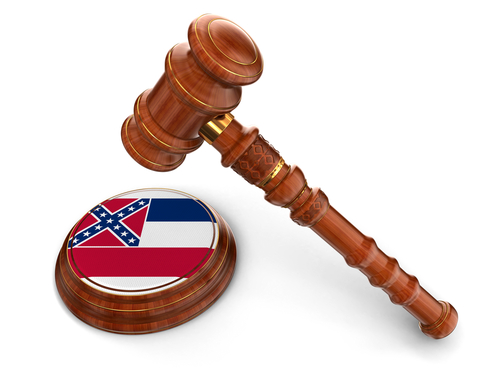Bar associations could be targeted, Trump DEI order says, spurring response from 2 of them

Bar associations could be targeted for investigation under President Donald Trump’s executive order seeking to end “illegal preferences and discrimination” in government and the private sector. (Image from Shutterstock)
Bar associations could be targeted for investigation under President Donald Trump’s executive order seeking to end “illegal preferences and discrimination” in government and the private sector.
The order issued Tuesday called for federal agencies to identify up to nine entities for possible civil compliance investigations, including large nonprofits and state and local bar associations.
The order declared that “influential institutions of American society” are using “dangerous, demeaning and immoral race- and sex-based preferences under the guise of so-called ‘diversity, equity and inclusion’ (DEI) or ‘diversity, equity, inclusion and accessibility’ (DEIA) that can violate the civil rights laws of this nation.”
Reuters has the story on the response from two state bar associations.
The State Bar of California said its programs won’t be affected because “none of our work in this space involves illegal discrimination or preferences.”
Victoria Santoro, president of the Massachusetts Bar Association, also said the state bar is not breaking the law.
“I think there are better ways our federal government could use its time than looking at bar associations,” Santoro added.
The American Bar Association is not commenting at this time, a spokesperson told the ABA Journal.
The ABA’s Goal III calls for eliminating bias and enhancing diversity by promoting full and equal participation in the association, the legal profession and the justice system. Over the last few years, these ABA diversity programs and policies have come under scrutiny:
• The ABA section that is recognized as the accrediting group for JD programs has been wrangling with changes to its diversity standard for law schools. As currently written, Standard 206 says law schools “shall demonstrate by concrete action” a commitment to having a student body, faculty and staff who are “diverse with respect to gender, race and ethnicity.” The section decided to revise the standard following a June 2023 U.S. Supreme Court decision striking down race-conscious admissions programs at universities.
The latest proposed revision under consideration by the ABA Section of Legal Education and Admissions to the Bar requires a commitment to diversity for all people, including listed members of historically disadvantaged groups.
The wording change didn’t satisfy 21 attorneys general in Republican-controlled states, who warned that it “appears to perpetuate unlawful racial discrimination.”
• At least nine ABA diversity programs were targeted by the conservative Wisconsin Institute for Law & Liberty in a civil rights complaint filed with the U.S. Department of Justice in May 2024. The ABA’s general counsel, Annaliese Fleming, said at the time the ABA programs are lawful. and the allegations are “factually and legally incorrect.”
In October 2024, the ABA updated its description of one targeted program—its judicial clerkship program—because some language “did not accurately reflect the operation of the program,” Fleming said in a statement explaining the change. The program introduces law students from diverse backgrounds to judges and law clerks.
• The ABA changed its diversity policy for continuing legal education programs that it sponsors after the Florida Supreme Court banned course credit in the state for programs with panel “quotas.” The old ABA policy had numerical requirements for diverse panelists; the new policy says CLE organizers “will invite and include” moderators and faculty members to create panels to meet Goal III objectives.
Write a letter to the editor, share a story tip or update, or report an error.



